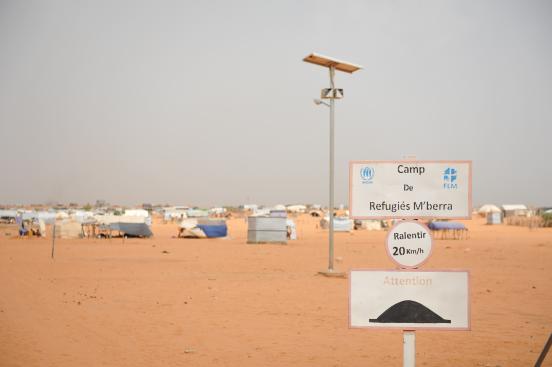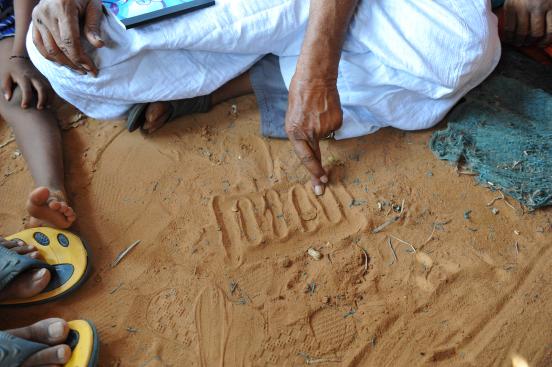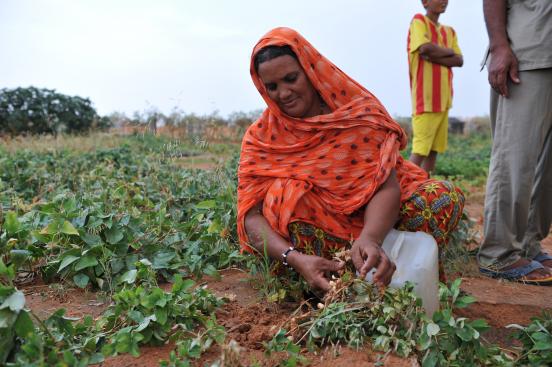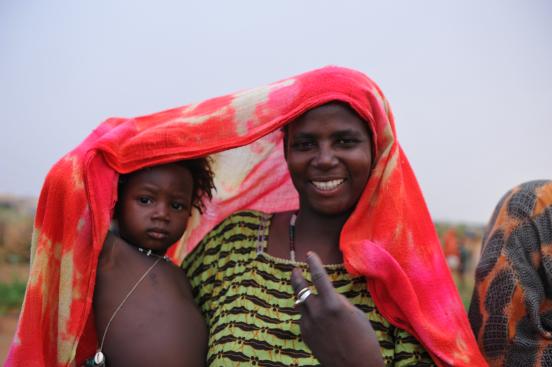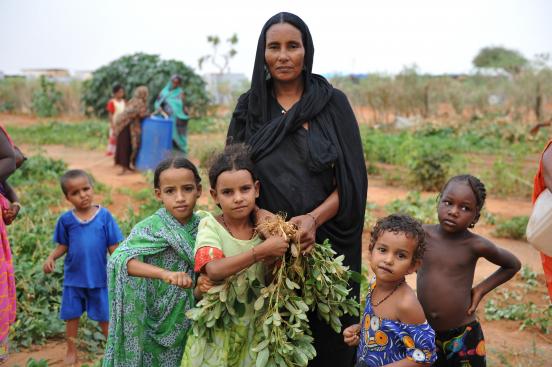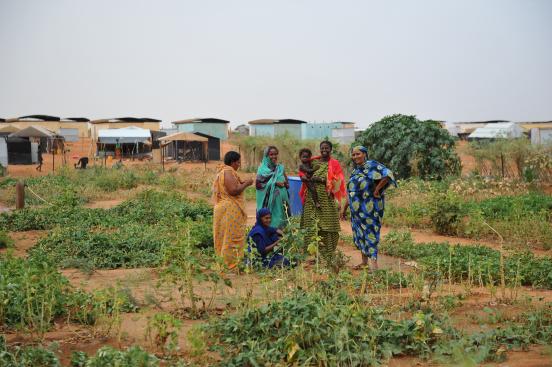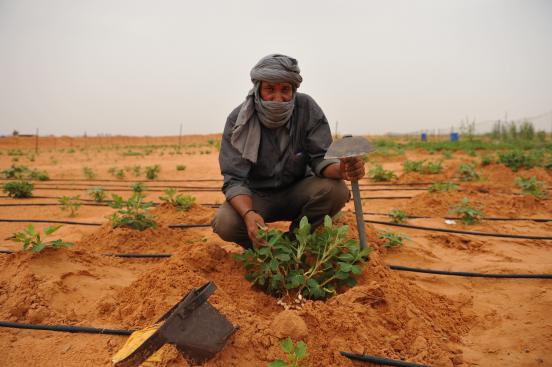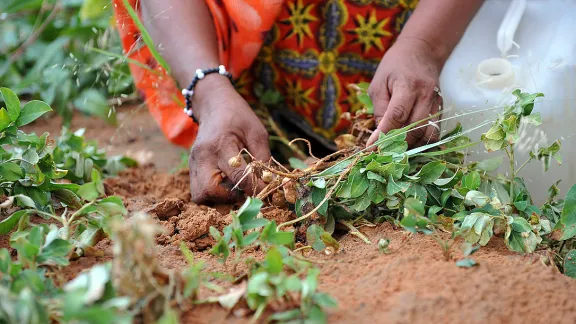
A woman tends a MARCOL training garden in Mberra camp, Mauritania. Thanks to the program Malian refugees produce more vegetables and the price of vegetables in the market has dropped. Photo: LWF/C. Kästner
LWF project helps Malian refugees increase food supplies
(LWI) – At the age of 42, Ali agd Forach has learned to farm the desert.
From neighboring Mali, Forach is one of 52,000 refugees who fled conflict in his home country and has been living in Mberra refugee camp, Mauritania, since 2012. The camp is located 50km from the common border, right in the Sahel, a strip of the Sahara desert.
“When I arrived there was nothing here,” Forach recalls. “From here to the horizon only hills of sand.” Now, however, he is growing peanuts and watermelons. Forach is one of 5,000 people who have been taught new horticultural and irrigation techniques for farming in the Sahel by The Lutheran World Federation.
Fertilize the desert
“It was quite difficult to convince people that they could grow vegetables here,” LWF project coordinator Papa Diallo recalls. During the day, the temperature climbs to 50 degrees Celsius. Hot winds, frequent sandstorms and sudden heavy rain can destroy many months work within minutes.
The project MARCOL has a curriculum that includes preparing nurseries, seedling production, organic fertilization, cultivation and techniques such as drip-to-drip-irrigation that make the most of the meager water reserves in the Sahel. “It’s a big challenge to fertilize the desert,” Diallo says.
The project targets 5,000 people from the camp and the host community. This includes 4,134 women, reflecting the traditional division of labor and the population in the camp. A select 200 of them received special gardening training. Each of those 200 people are sharing what they learned in groups of 25 people.
Where there was sand before, plots measuring altogether 31 hectares have sprung up in the camp and surrounding villages. “We now have more vegetables available, and since more people are selling them, the price in the market has dropped,” Tassayate ub Med says. Her family’s situation has improved a great deal. “Before we paid about 3 USD for a meal, now it’s only 1 USD.”
“I was astonished to see the quantity of our first harvest,” her neighbor Taya ub Mazou adds. “It was a proud moment when I could share the fruits of my garden. We can even use the remains of the plants to feed our goats. From each harvest, we have a double benefit.”
A different life
Living in Mberra represents a big change to the refugees. Walking long distances to work the fields in the heat and carrying heavy water cans is difficult for the women. Back in Mali, many were nomadic pastoralists. Some brought their cattle and goats with them when they fled. But in Mberra, hardly enough water and grazing grounds exist for the local host community. In the neighboring town of Bassikounou, dead cows decomposing near a water point and a high prevalence of respiratory diseases and malnutrition tell visible tales of the challenging environment in which the refugees and the local communities co-exist.
LWF encouraged the nomads to become farmers. “Because of the lack of water and grass, the animals produce less milk,” Diallo says. “The vegetables complement and increase the nutritional value of the refugees’ traditional diet.”
Additionally, teaching gardening techniques has minimized conflicts with the host community. Nevertheless, many refugees are still reluctant to exchange their traditional diet of milk and meat for watermelons, peanuts and eggplants. Some sell their vegetables to buy meat.
Attacks from the river
Even farmers like Forach needed time to adjust. “I had a home by the Mali river,” Forach says. “My fields were right by the stream, I grew rice, and water came from a motorized borehole. I had two big fields and a garden. Water was never a problem.”
But when fighting broke out in Mali, his source of livelihood became a death trap. “Militia would come by boat and attack the villages from the river. It was not safe anymore. I had to leave my garden and my animals and come here as a refugee. I was very sad to go,” he says despondently. “As nobody is there to take care of it, everything is probably destroyed by now.”
The farmer still hopes to go back to what he had to leave. “I plan to rebuild my life in Mali,” he says. “I will bring what I have learned here and share it with others if I can. I am a farmer. I don’t want to do anything else.”
October 16 is World Food Day.
